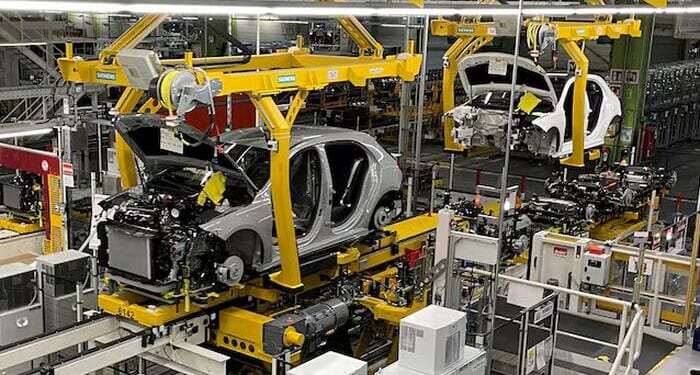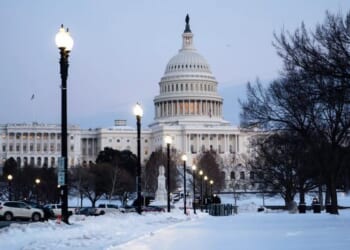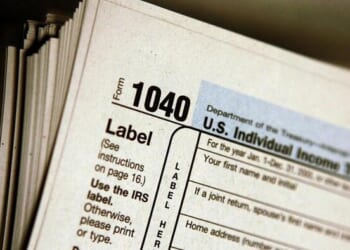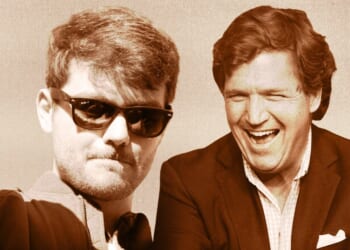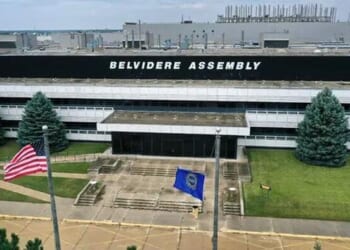Submitted by Thomas Kolbe
The collapse of German industrial production is dragging municipal finances down with it. The state-funded economic institute DIW claims salvation lies in the artificial Green Tech sector.
It is becoming increasingly difficult to shock readers with new economic numbers, given Germany’s ongoing economic decline. Yet a 19% plunge in machinery orders in September—reported by the VDMA—manages exactly that. A shock even by German standards.
The association offered an explanation right away: last year’s large-scale plant orders are simply missing this September. But that doesn’t change the diagnosis.
Johannes Gernandt, chief economist of the VDMA, expects another 5% drop in production this year. That means German mechanical engineering has lost more than 15% of its output since its 2018 peak—an unprecedented decline of one of the country’s key industries, barely reflected in media coverage. Overall industrial production is down almost 20%.
Silence Instead of Debate
Public debate about the real state of the German economy suffers from a lack of honest assessments—from within the economy itself. Only Christian Kullmann, CEO of chemical giant Evonik, dared to place his finger on the wound, denouncing the crisis as a direct result of Brussels-style climate policy.
One looks at this collapse and rubs one’s eyes in disbelief. Where are the sharp, unvarnished words about politics, conditions, exploding energy costs and the chokehold of bureaucracy?
Has politics really succeeded in binding large parts of corporate leadership so deeply into the subsidy machinery that criticism has become impossible?
How many business models would collapse if Brussels and Berlin pulled the plug on subsidies overnight?
It’s hard to avoid a grim conclusion: state intervention has turned major parts of the economy into dependent command structures, fed by the subsidy printer. This has distorted public discourse—removing its critical edge and pulling its teeth.
Voice from the Shadows
Now another heavyweight speaks up: former VW CEO Matthias Müller. No longer in office, but still a voice from the top tier of German industry. And Müller finds clear—almost desperate—words in light of the looming industrial collapse. He warns of a “job massacre” in the auto industry.
Rightly so. Müller sees not only carmakers at risk, but the entire value chain. He blames “Eurocrats” for banning combustion engines and blocking a soft transition to e-mobility.
Reality proves him right: at Bosch and ZF Friedrichshafen, tens of thousands of jobs are already disappearing. Müller condemns an ideology-driven policy that sends energy prices into absurd territory and suffocates industry with bureaucratic madness. He speaks of a “lost decade”—and he isn’t wrong.
But this is exactly where debate dies: observations, warnings, appeals—lonely voices in a dead desert. A real discourse on the true state of the German economy? Nowhere.
Meanwhile, like a monument to delusion, stands the growth forecast of Economy Minister Katharina Reiche (CDU). Her ministry seriously expects 0.2% growth this year—and 1.3% by 2026.
Given mass layoffs, collapsing demand, and shrinking production—who has the nerve to send their minister out with such fantasy numbers?
Propaganda Units Activated
When criticism of Berlin or Brussels economic policy threatens to gain traction, institutes like DIW are ready to neutralize it. Its president, Marcel Fratzscher—known for bizarre media ideas like mandatory labor service for retirees—regularly delivers ideological cover fire.
Serious economists are rare at DIW. When criticism touches the artificial “eco-economy,” Claudia Kemfert steps onto the stage—DIW’s “climate economist” and staunch defender of green state capitalism. In a column for Focus, she downplayed Germany’s industrial crisis, portraying it as a transition toward a green industrial future already generating 9% of GDP.
Her view of Greentech—subsidy-fed industries living off taxpayers, state programs, and cheap ECB money—presents the illusion of a new economic model smoothly replacing old structures.
Subsidized heat pumps, recycling schemes, fragile storage technologies for an unstable power grid—this, we’re told, will replace automotive, machinery, and electrical engineering.
An extraordinary worldview—one that ignores global markets, real demand, energy costs, and the failure of central planning.
What Kemfert and Fratzscher sell is pure voodoo economics—a pseudo-scientific backdrop to safeguard eco-socialist policy.
Municipal Collapse
The consequences of central economic planning—broken supply chains, permanent recession, rising unemployment—are never addressed. But reality has hit the foundations of the state—local treasurers. The collapse is now destroying municipal finances: business tax revenues are crumbling.
In a letter to the Chancellor, 13 mayors of state capitals demanded emergency aid to prevent fiscal collapse.
It remains to be seen whether fresh debt from special funds will be used once again to plaster over symptoms—or whether the wall of silence finally breaks and the root of the crisis is named: the Green Deal.
A green transformation—wrapped in warm words and environmental rhetoric—that is sawing away at the economic foundations of this country.
Green comfort propaganda and subsidy placebos will not be enough to calm the rising army of the unemployed.
* * *
About the author: Thomas Kolbe, born in 1978 in Neuss/ Germany, is a graduate economist. For over 25 years, he has worked as a journalist and media producer for clients from various industries and business associations. As a publicist, he focuses on economic processes and observes geopolitical events from the perspective of the capital markets. His publications follow a philosophy that focuses on the individual and their right to self-determination.
Loading recommendations…

